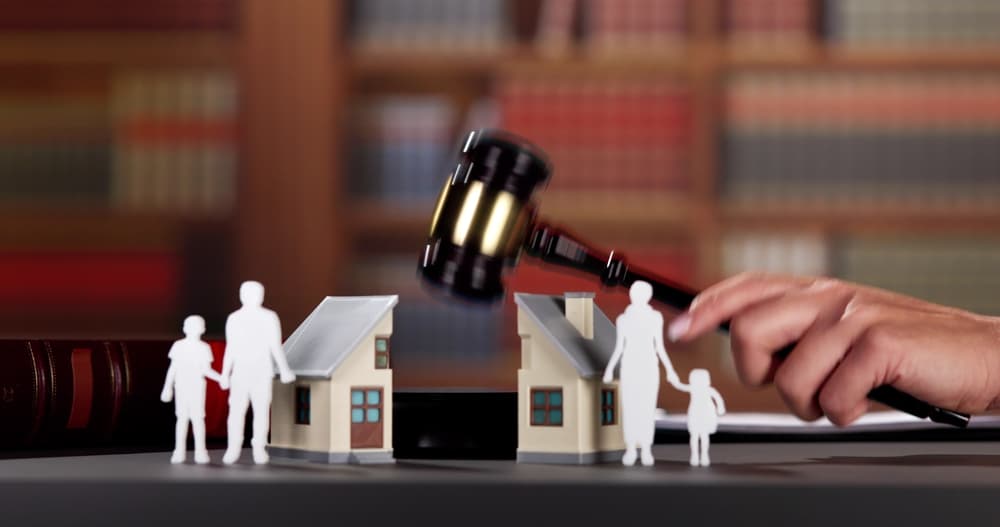Divorce throws even cooperative couples into an emotional whirlwind. Even with open communication and shared information, unwinding finances, dividing assets, and navigating child custody (if applicable) all add layers of complexity to an already difficult situation.
The process can become significantly more complicated when one spouse suspects the other of hiding assets.
Both parties must honestly present their finances during a divorce, as property division, spousal support, and other issues depend on the financial situation of each spouse. Hidden assets can significantly impact the division of property and spousal support determinations, often resulting in a highly unfair outcome for one spouse.
Proving that a spouse is hiding assets can be a meticulous, frustrating, and time-consuming task, requiring the experience of a skilled divorce lawyer. If you suspect your spouse may be concealing assets during the divorce proceedings, always seek legal guidance to protect your rights and interests.
Contact a San Diego divorce attorney near you to discuss your situation and explore the legal options available to uncover any hidden assets, ensuring a fair and equitable resolution to the divorce proceedings.
Understanding Hidden Assets in Divorce Cases

During divorce proceedings, both parties must provide a complete and accurate disclosure of their assets, expenses, income, and liabilities.
Accurate financial disclosures are necessary in divorce cases as they provide a clear picture of each spouse's financial situation. Both parties need to provide complete and honest information in their financial disclosures.
In divorce proceedings, financial disclosures serve as the foundation for determining issues such as property division, spousal support, and child support. If one spouse fails to disclose or intentionally hides assets, it can significantly impact the outcome of the divorce settlement for both parties involved.
However, some individuals may attempt to conceal assets to prevent them from being included in the property division process. Hidden assets can include cash, investments, real estate, business interests, offshore accounts, and valuable personal belongings. Nearly anything of value can becomeasset in a divorce.
Divorcing spouses may hide assets to avoid a fair division of property, minimize spousal support or child support obligations, simply out of spite, or even maintain a higher living standard post-divorce. Uncovering hidden assets is imperative to ensure a fair and equitable resolution to the divorce and protect the rights and interests of both parties involved.
How to Protect Yourself from Asset Hiding
While discovering hidden assets is essential, protecting your property rights during the divorce process and financial future is equally important.
Here are some steps you can take to safeguard your interests:
- Being proactive in understanding your financial situation: Educate yourself about your marital finances, including income, expenses, and assets. Stay informed and actively involved in financial matters throughout your marriage to ensure you clearly understand your financial standing.
- Consulting a knowledgeable attorney: Engage the services of a reputable divorce lawyer. They can provide guidance, support, and legal advice to uncover hidden assets and protect your property rights.
- Taking steps to secure and preserve evidence: Document any suspicious financial activity or behavior exhibited by your spouse. Keep copies of financial statements, emails, receipts, or any other evidence that may be relevant to your case.
Signs Your Spouse May Be Hiding Assets
Detecting hidden assets requires a keen eye and a thorough understanding of financial matters. While it's not always easy to tell if your spouse is hiding assets, some red flags may indicate potential wrongdoing. Here are some signs to watch out for:
Financial Secrecy and Control
If your spouse has always maintained complete control over the family finances, and you have minimal knowledge about the household's financial situation, it can be a sign that they are hiding assets.
Financial secrecy and control may also involve denying access to bank accounts, credit card statements, and other financial documents.
Abrupt Changes in Financial Behavior
Sudden changes in your spouse's financial behavior, such as excessive spending, unusual generosity towards others, or significant withdrawals from joint bank accounts, can signal attempts to hide assets. These sudden changes might be an effort to disperse marital assets and make them less traceable.
Discrepancies in Financial Records
Suppose you notice inconsistencies or discrepancies in financial records, such as missing documents, unexplained expenses, or changes in account balances. In that case, it may indicate that your spouse is hiding assets.
Pay close attention to any irregularities in tax returns, bank statements, investment accounts, and business records.
Creating Fake Debt
Another tactic used to hide assets is creating fake debt. By fabricating loans or financial obligations, individuals can move money out of sight, making it appear like they used the funds to settle debts.
Creating fake debt can include forging loan documents, pretending to owe money to a family member, or even fabricating business expenses.
Transferring Assets to Third Parties
Watch out for any transfers of assets to family members, friends, or business associates that seem unrelated to any legitimate purpose. Your spouse may hide assets by transferring ownership to a third party, making it appear they no longer control them.
Unexplained Decrease in Income
If your spouse suddenly experiences a significant decrease in income without any reasonable explanation, it might be a tactic to make their assets appear smaller than they actually are.
Complex Financial Arrangements
Complex financial arrangements, such as offshore accounts, trusts, or multiple business entities, might hide assets.
These intricate structures can make it challenging to trace and uncover hidden assets, requiring the assistance of a skilled attorney who is well-versed in financial investigations.
Using Cryptocurrencies
With the rise of digital currencies like Bitcoin, individuals may attempt to hide assets by converting them into cryptocurrencies. Cryptocurrencies offer a high level of privacy and can be difficult to trace.
By transferring funds into cryptocurrencies, individuals can effectively move their wealth outside the traditional banking system, making it challenging to discover during divorce proceedings.
Gathering Evidence to Support Your Case

To successfully prove your spouse's hidden assets, you and your divorce attorney will need to gather persuasive evidence to support your claim.
Here are some key steps to consider:
- Document all suspicious financial behavior: Keep a detailed record of any suspicious financial transactions or activities exhibited by your spouse, including dates, amounts, and any supporting documents.
- Maintain copies of financial documents: Make copies of all relevant financial documents, such as bank statements, tax returns, property records, and investment statements. These documents can serve as evidence in your case.
- Obtain expert opinions: Consult forensic accountants and other financial experts who can provide expert opinions on the presence of hidden assets based on their analysis of the financial records.
- Gather witness testimonies: If there are individuals who have knowledge of your spouse's hidden assets, gather witness testimonies to support your claim. This can include employees, business partners, or acquaintances who may have relevant information.
Your divorce lawyer will guide you through gathering evidence and building a strong case. Collaborate closely with them to ensure you have all the necessary evidence to support your claim.
Seeking Legal Remedies for Hidden Assets
If you have evidence to support your suspicion of hidden assets, here are some legal remedies an experienced divorce lawyer can pursue:
- Filing a motion for discovery or a motion to compel: The court can order your spouse to disclose financial information and produce relevant documents. Filing a motion for discovery or a motion to compel can be instrumental in obtaining the information necessary to prove hidden assets.
- Seeking a forensic audit of financial records: A forensic audit conducted by a qualified professional can thoroughly examine financial records, transactions, and accounts to identify any attempts at hiding assets. This can be a powerful tool in uncovering concealed assets.
- Pursuing legal action for asset recovery: If your spouse has successfully hidden assets, you may be entitled to seek legal action for asset recovery. Consult your attorney to explore your options and take appropriate steps to recover what is rightfully yours.
The Legal Consequences of Hiding Assets
Hiding assets during a divorce is not only morally wrong but also comes with legal consequences.
Understanding these potential consequences can help you get through the divorce process effectively:
- Potential penalties for hiding assets in divorce proceedings: Courts take a dim view of spouses who hide assets during divorce proceedings. If your spouse is caught hiding assets, they may face penalties, fines, or even jail time, depending on the jurisdiction and the specific circumstances.
- Impact on property division and alimony awards: Hiding assets can significantly impact property division and spousal support awards. Your spouse’s action can damage their credibility in the eyes of the court, which can have broader implications for their overall credibility in the divorce proceedings. By concealing assets, your spouse may deprive you of a fair and equitable share of marital property or reduce the amount of alimony you may be entitled to.
- Enforcing court orders to uncover hidden assets: If you suspect your spouse is hiding assets, you can seek legal remedies to uncover the truth. This may involve enforcing court orders for financial disclosure, hiring a forensic accountant, or obtaining subpoenas to gather evidence.
Uncovering hidden assets during divorce proceedings requires careful investigation, strategic planning, and professional oversight. Working with a knowledgeable divorce lawyer and financial experts can significantly increase your chances of success in uncovering hidden assets and protecting your financial interests.
The Role of a Divorce Lawyer in Uncovering Hidden Assets
Uncovering hidden assets in divorce cases requires professional help and resources. A skilled divorce attorney has experience in investigating and identifying hidden assets. Here's how a divorce lawyer can work to uncover hidden assets:
Conducting Financial Investigations
A divorce attorney will thoroughly examine your financial records and thoroughly investigate your spouse's assets and financial activities. They will scrutinize bank statements, tax returns, business records, investment accounts, and other relevant documentation to identify any discrepancies or signs of hidden assets.
Engaging Forensic Accountants
Experienced divorce lawyers have access to a network of professionals who can assist in uncovering hidden assets. This network may include forensic accountants, private investigators, and financial experts who specialize in tracing assets.
In complicated cases involving high-value assets or complex financial arrangements, a divorce attorney may engage forensic accountants to assist in the investigation. Forensic accountants are trained to trace financial transactions, uncover hidden assets, and provide expert opinions and testimony in court.
Obtaining Court Orders
If there is strong suspicion that your spouse is hiding assets, your attorney can seek court orders to compel them to provide full financial disclosure. These court orders may include subpoenas for bank records, business records, and other relevant documents needed to uncover hidden assets.
Skilled Negotiation and Settlement

A knowledgeable divorce attorney will use their negotiation skill to account for hidden assets during property division and spousal support determinations. They will fight to protect your rights and interests, advocating for a fair and equitable resolution based on accurate and complete financial information.
Litigation Support
If necessary, a divorce attorney can represent you in court proceedings to present the evidence of hidden assets and advocate for a fair outcome. They will work with you to develop a strong legal strategy and provide professional guidance throughout the litigation process.
Do You Suspect Your Spouse is Hiding Assets in Your Divorce? Contact a Seasoned Divorce Attorney Today for Help
Divorce is hard enough, but it’s even more challenging and contested when one spouse suspects the other of hiding assets.
To protect your rights and interests during the divorce proceedings, seek the guidance of a seasoned divorce attorney.
A professional attorney who is well-versed in family law in your state can take steps to uncover hidden assets, conduct financial investigations, and ensure a fair and equitable resolution.
If you suspect your spouse may be hiding assets, don't hesitate to contact a divorce attorney near you. They will provide the legal guidance necessary to manage this tricky situation effectively and achieve a favorable outcome in your divorce.
